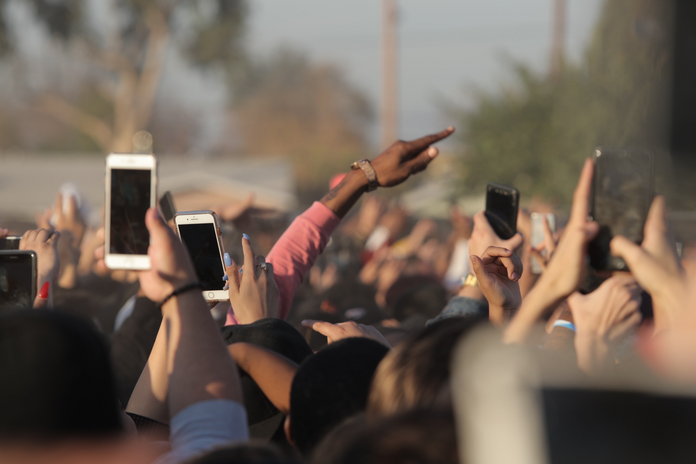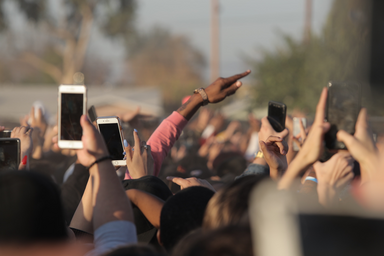The average adult spends almost three hours on their phone every day. Let that sink in. This means that three hours of our precious, fleeting time is devoted to our digital lives, lives which can be deleted with the click of a button. In this world, it is okay to look at our phones instead of people. In this world, we choose to communicate through shallow likes and shares, rather than genuine laughs and smiles. In this world, we even risk our lives to sneak a peek at our screens while we are driving or walking across a busy street. The fact of the matter is, we are addicted. I am addicted to my cell phone. If my phone isn’t in the palm of my hand or in reaching distance, I feel uneasy. I crave the attention it gives me every second of every day, with every ring and rang tingling my human need for attention.
Sound familiar?
The rise in nomophobia (phone addiction), fear-of-missing-out (FOMO), and even blindness from screen light, prove that the overuse of our phones can burn our minds and bodies from the inside out. The danger does not stop at just our health. Phones inevitably hinder our ability to communicate, and even function. It is easy to lose our grip on our values and humanity as we drown in our endless stream of notifications.
Last semester, my phone crashed out of nowhere and left me traumatized as it wiped away all my contacts, messages, and even thousands of pictures that I had hoarded from years before. I realized in the weeks that I had gone without a phone how dependent I am on it to maintain my life, and learned that we should not take for granted all our phones do for us. Therefore, with such a sophisticated tool, should come sophisticated rules:
1.) One could use their smartphone when they are alone.
I cringe each time someone whips their phones out mid-conversation with me. When a phone is added to a conversation, it inevitably alters the direction and feeling of it, as technology can be a distraction to our ability to listen and interact with others. The physical mechanisms employed during a conversation–such as eye-contact, smiling, or nodding–can sometimes tell you even more than the words being said. These mechanisms can be harder to incorporate if one is focused on their phone during a conversation. For this reason, one should use their smartphone when they are alone, or simply not communicating with others. I know for a fact that I have learned more from organic conversations with people than formulated dialogue with Siri.
2.) One could use their smartphone to avoid awkward situations.
Smartphones are increasingly being used as an excuse for bad manners or rudeness. For one, many resort to staring down at our phones instead of making eye contact or even acknowledging someone’s presence. However, in some more awkward encounters, we can use our phones as a shield to reality. This can be beneficial in the midst of a heated argument, or even an uncomfortable encounter with a stranger on the Metro. Pulling out your phone can send the message that you no longer care to continue the interaction, which can alleviate your discomfort and diffuse the awkwardness in the moment.
3.) One could use their smartphone to capture life’s most important moments.
Pictures and videos have the power to move people. From baby to wedding pictures, it is appropriate to use smartphones to document life’s most precious moments. The ability of a smartphone to fit right in your pocket offers a convenient alternative to bulky cameras, thus providing you the opportunity to collect and store moments that mean the most to you from anywhere, at anytime. The ability for smartphones to automatically save and store pictures into cloud databases also offers a safe and secure way to keep your memories intact. Making the most use out of smartphone cameras to capture your life as it unfolds can provide a user happiness and love both in the present, as well as future.
Although these rules form a foundation for appropriate phone use, your best judgmement based on the situation is your best tool. If nothing else, follow this etiquette to take control over your smartphone, before it takes even more control over you.


